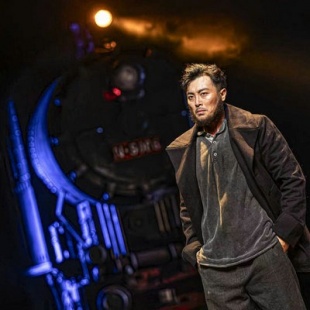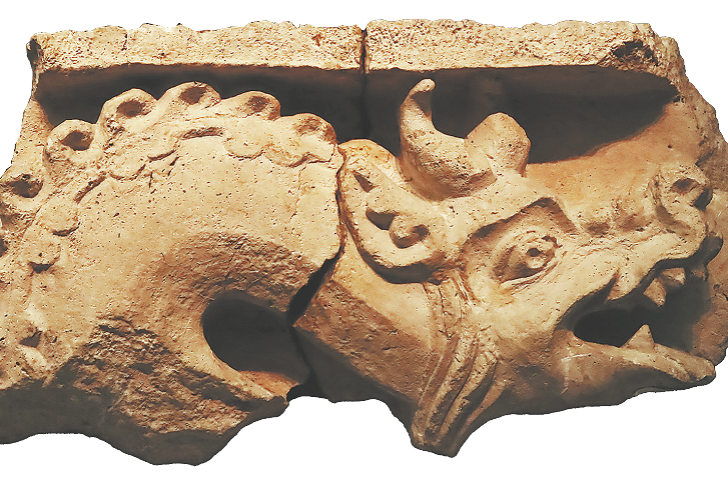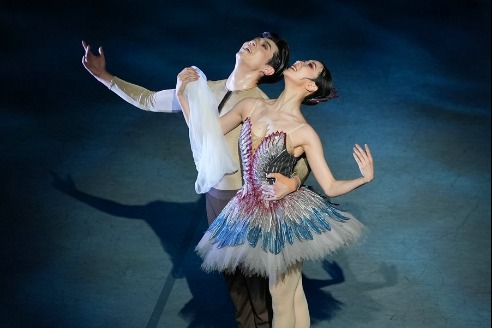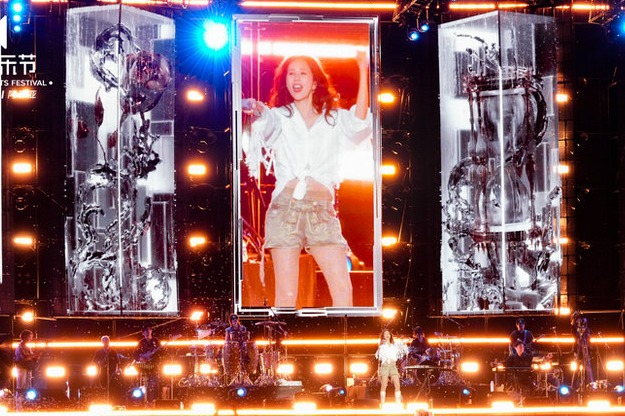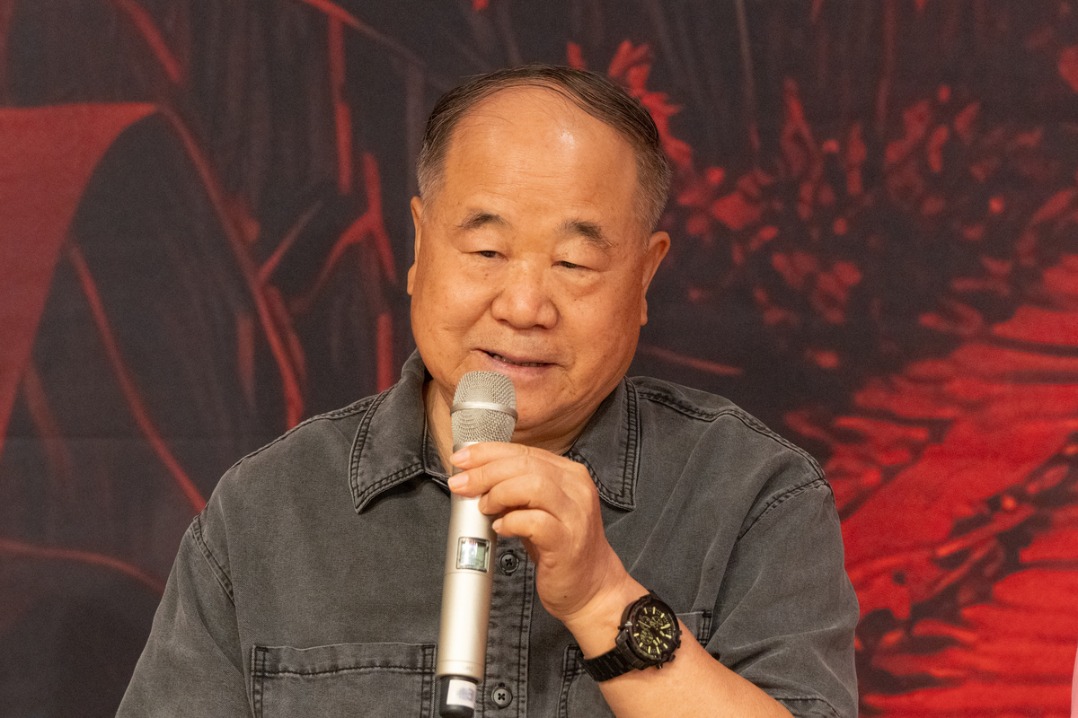Stage classic is reinterpreted with symbols of hope

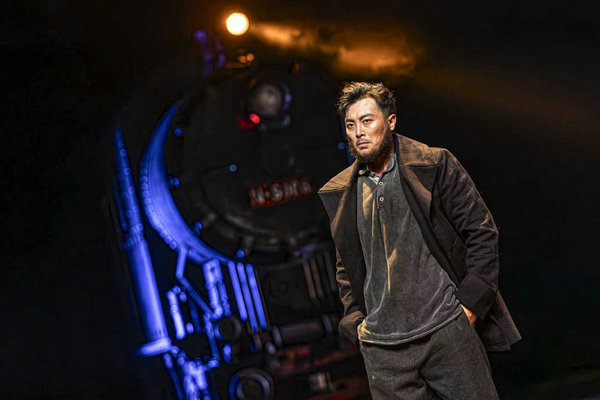
On Saturday, the Beijing People's Art Theatre premiered a newly staged anti-war production of Der Bockerer at the Beijing International Theater Center's Cao Yu Theater.
Part of the commemorative program marking the 80th anniversary of the victory in the Chinese People's War of Resistance Against Japanese Aggression (1931-45) and the World Anti-Fascist War, the play seeks not only to reinterpret a modern classic artistically but also to remind audiences, through drama, of the value of peace and the vigilance required against war.
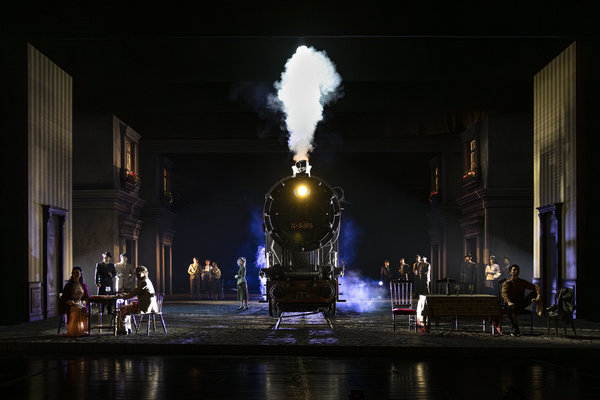
Der Bockerer tells its story through the lives and fates of butcher Bockerer, his family, and friends, which captures the cruelty of war. The play first premiered at the Beijing People's Art Theatre in 1982, and was performed by a generation of stage legends, including Zhu Xu, Zheng Rong, and Zhou Zheng, leaving an enduring impression on audiences.
This rendition is far more than a nostalgic return. A cast of talented middle-aged and young actors takes the stage, building on the theater's realist tradition while exploring new expressive possibilities. The stage design transforms every corner into a performance area, seamlessly merging Bockerer's home, the butcher shop, and the story's other settings into a fluid, theatrical world.
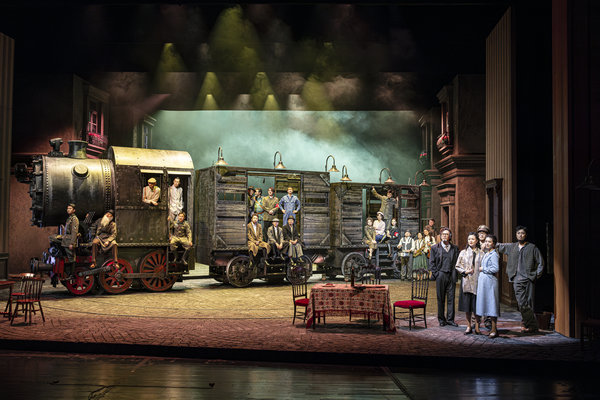
One of the most striking elements is a full-scale vintage steam train — a locomotive with two carriages attached, that dominates the stage. The set allows the train to move and rotate along the stage's vertical space. Whenever it emerges, slowly creeping from the wings or looming in the back, it casts a chilling sense of oppression, echoing the fear and instability that war stamped into people's hearts.
Director He Bing says the train carries layered meanings — it evokes both visual and psychological shock, and serves as a symbol of hope.
"It can also take us to distant places," He says.
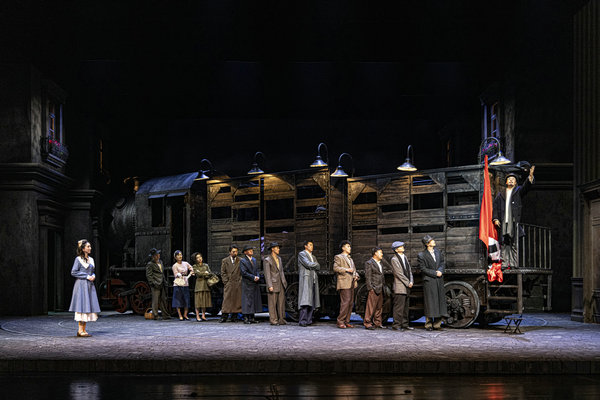
The train also serves as a metaphor for the passage of time, resonating with the play's sweeping narrative arc.
Der Bockerer will run through Sept 17, offering audiences both a theatrical spectacle and a sobering reflection on wartime history.


